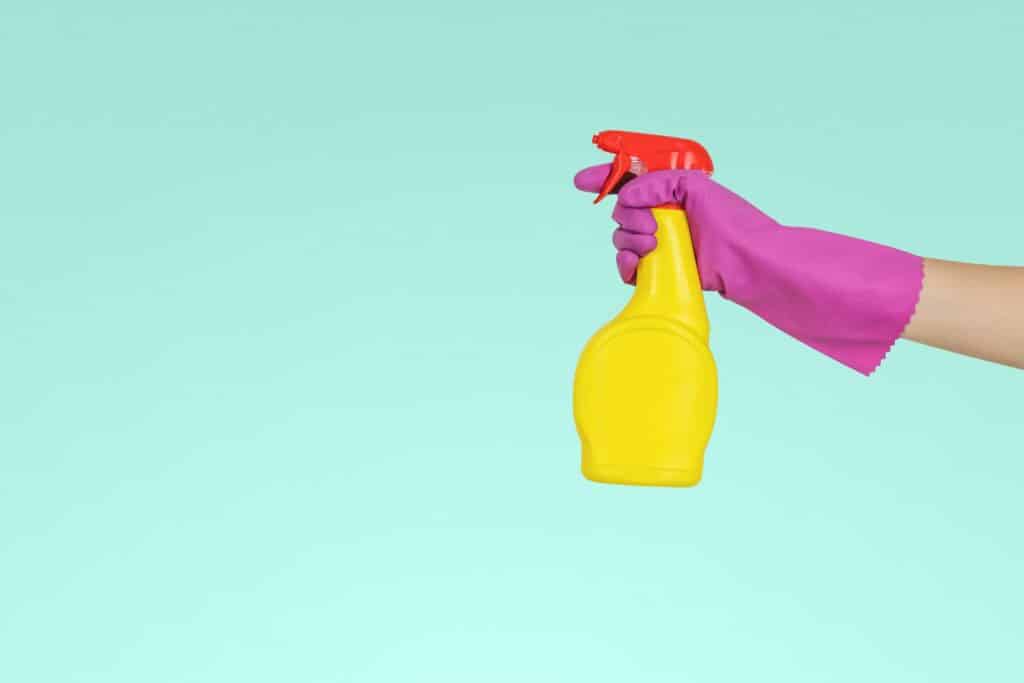Understanding Cleaning Needs
Before shopping for cleaning supplies, it’s essential to understand your cleaning needs. This involves distinguishing the different spaces that require cleaning and determining your cleaning goals.
Distinguishing Different Spaces for Cleaning
Different areas in a home or office may require different types of cleaners. For example, kitchens and bathrooms often require more heavy-duty cleaners due to the potential for bacterial growth. On the other hand, living areas, bedrooms, and offices may require lighter, more gentle cleaners that are safe for furniture and electronics.
Moreover, different types of flooring (like hardwood, tile, or carpet) need specific cleaners. Carpet cleaning, for instance, requires a different approach compared to cleaning hardwood or tile floors.
By distinguishing the different spaces and surfaces that need cleaning, you’ll be better equipped to choose the right cleaners for each task.
Determining Your Cleaning Goals
Aside from recognizing the different spaces for cleaning, it’s also important to determine your cleaning goals. Do you aim to do a light cleaning once a week, or are you preparing for a deep cleaning, like spring cleaning? Are you focusing on general cleanliness, or are you looking to disinfect during the cold and flu season?
Additionally, consider if you have specific needs, such as eco-friendly cleaners or products that are safe for children and pets. Are you looking to remove stubborn stains, or are you more interested in maintaining a generally clean space?
Determining your cleaning goals will help guide you in selecting the cleaners that best meet your needs. Whether you’re aiming for a spotless home or maintaining a tidy office, understanding your cleaning needs and goals is the first step to cleaning with confidence.
Categories of Cleaners
In the world of cleaning, different areas require different types of cleaners. From surface cleaners to carpet cleaners and window cleaners, each has unique properties designed for specific tasks.
Surface Cleaners
How Surface Cleaners Work
Surface cleaners work by breaking down the dirt and grime on surfaces, allowing them to be easily wiped away. They contain ingredients that can dissolve a variety of substances, making them an essential tool in your cleaning arsenal. For best results, it’s important to leave the cleaner on the surface for a few minutes to allow it to penetrate the dirt before wiping it off.
Common Uses for Surface Cleaners
Surface cleaners are versatile and can be used in multiple areas around the home or office. They are typically used on kitchen countertops, bathroom surfaces, and hard floors, helping to keep these areas clean and hygienic. For a thorough guide on deep cleaning your bathroom, consider checking out our article on how to deep clean your bathroom.
Carpet Cleaners
How Carpet Cleaners Work
Carpet cleaners operate by using a combination of water and a cleaning solution to penetrate the carpet fibers, breaking down dirt and stains. This mixture is then vacuumed up, taking the dirt with it and leaving your carpet clean and fresh. For more information on how to clean your carpets like a pro, see our article here.
Common Uses for Carpet Cleaners
Carpet cleaners are primarily used for deep cleaning carpets, rugs, and upholstered furniture. They can help remove stubborn stains and embedded dirt, improving the appearance and longevity of your carpets. Regular use of a carpet cleaner can also help to reduce allergens and improve the air quality in your home or office.
Window Cleaners
How Window Cleaners Work
Window cleaners work by dissolving dirt and grime on the glass, allowing it to be easily wiped away for a streak-free finish. These cleaners often contain ingredients that help to repel dust and dirt, keeping your windows cleaner for longer. For tips on the best way to clean your windows, refer to our article here.
Common Uses for Window Cleaners
As the name suggests, window cleaners are primarily used for cleaning windows. However, they can also be used on other glass surfaces such as mirrors, glass doors, and even some appliances, leaving them sparkling clean and streak-free.
Understanding the different types of cleaners and their uses can help you choose the right cleaner for your specific cleaning needs. Remember, the effectiveness of the cleaner can be greatly enhanced by using it correctly and following the manufacturer’s instructions. For more cleaning tips and advice, feel free to explore our other articles.
Factors to Consider When Choosing Cleaners
Selecting the right cleaners for your home or office can be a challenging task, given the plethora of options available in the market. To make this process easier, it’s beneficial to consider a few key aspects: the effectiveness of the product, its safety, and whether it’s eco-friendly.
Effectiveness
The primary factor to consider is the effectiveness of the cleaner. When gauging this, consider the product’s ability to eliminate dirt, grime, stains, and bacteria. While it’s essential for the cleaner to effectively remove dirt and stains, it’s equally important for it to sanitize the surfaces, reducing the risk of illness.
Additionally, the cleaner should be compatible with the surfaces you intend to clean. For example, the cleaner used for carpets may not be suitable for windows. Therefore, always check the product label for information about its usage and the surfaces it’s designed to clean. For more details on specific cleaners for different surfaces, you might find our articles on how to clean your carpets like a pro and the best way to clean your windows useful.
Safety
The safety of the cleaner is another crucial aspect to consider. Certain cleaning products may contain harsh chemicals that can cause health problems if inhaled or come in contact with skin. Always look for cleaners that are non-toxic and free from harmful chemicals.
Moreover, if you have children or pets at home, ensure the cleaners are safe for them. Some cleaners can be highly toxic if ingested, so it’s critical to keep such products out of reach of children or pets. For more tips on using cleaners safely, refer to our article the 7 habits of highly effective cleaners.
Eco-friendly Options
In recent years, there’s been a growing trend towards using eco-friendly cleaning products. These cleaners are made from natural ingredients and are biodegradable, causing minimal harm to the environment. They also tend to be safer for use around children and pets.
While eco-friendly cleaners may sometimes be less potent than their chemical counterparts, they can still effectively clean most household surfaces. Moreover, they contribute to a healthier home environment by reducing your exposure to toxic chemicals. For more insights on maintaining a clean and healthy home, check out our article on 7 benefits of keeping your home clean and tidy.
By considering these factors – effectiveness, safety, and eco-friendliness – you can make an informed decision when choosing the cleaners that best meet your needs. Remember, the goal is not just to have a clean space, but also a safe and healthy one.
Tips for Using Cleaners Effectively
To achieve optimal results when cleaning your home or office, it’s crucial to use cleaners in the most effective way possible. This section will provide some key tips on the proper usage and maintenance of cleaners.
Proper Usage of Cleaners
Every cleaner is designed for a specific purpose and should be used according to the manufacturer’s instructions. Incorrect usage can lead to ineffective cleaning, and in some cases, it can damage the surfaces you’re trying to clean.
When using a new cleaner, start by reading the instructions on the label. This will provide information on how much cleaner to use, how long to leave it on the surface, and whether it needs to be rinsed off. Always follow these instructions to ensure the cleaner works effectively.
For example, some cleaners need to be diluted before use, while others should be used at full strength. Some cleaners should be left on the surface for a few minutes to break down dirt and grime, while others should be wiped off immediately to avoid damaging the material.
Remember to always test a new cleaner on a small, hidden area first to make sure it doesn’t discolor or damage the material.
For more tips and tricks on how to use cleaners effectively, check out our article on 10 cleaning mistakes you might be making.
Maintenance and Storage of Cleaners
Proper storage of cleaners is also important for maintaining their effectiveness and ensuring they’re safe to use.
Most cleaners should be stored in a cool, dry place out of the reach of children and pets. Avoid storing cleaners in areas with extreme temperatures, as this can affect their effectiveness.
Always keep cleaners in their original containers with the lids tightly closed. If you need to transfer a cleaner to a new container, make sure to label it clearly with the name of the cleaner and the usage instructions.
Cleaners should never be mixed together, as this can cause chemical reactions that can be harmful or even dangerous.
Finally, remember to check the expiration dates on your cleaners. Over time, the ingredients in cleaners can break down, reducing their effectiveness. If a cleaner is past its expiration date, it’s best to dispose of it and replace it with a new one.
For more insights on how to maintain and store cleaners, check out our article on the 7 habits of highly effective cleaners.
By understanding the proper usage and maintenance of cleaners, you can ensure your cleaning tasks are carried out effectively and safely. Always remember to read and follow the instructions on the cleaner’s label, store cleaners properly, and replace them when they’re past their expiration date.
Common Misconceptions About Cleaners
In the world of cleaning, there are a multitude of myths and misconceptions that can cause confusion, especially when choosing and using cleaners. This section aims to dispel some of these common misconceptions.
Debunking Cleaning Myths
There are several cleaning myths that have been passed down through generations or spread through social media. These myths can not only be ineffective but can sometimes lead to more damage or waste of resources.
One such myth is the idea that more cleaner equals a cleaner surface. In reality, using excessive amounts of cleaner can leave residue on surfaces and may not necessarily increase cleaning efficiency. It’s more important to follow the usage directions provided by the cleaner manufacturer.
Another common myth is that all cleaners disinfect. However, not all cleaning products are designed to kill germs and bacteria. Some are formulated for cleaning, i.e., removing dirt and grime, while others are specifically designed to disinfect.
For a more in-depth look at cleaning myths, consider our article 5 common cleaning myths debunked.
The Truth About ‘All-Purpose’ Cleaners
‘All-Purpose’ cleaners are a popular choice due to their versatility. However, the term ‘all-purpose’ can be misleading. While these cleaners are effective on many surfaces, they are not suitable for all. For example, many all-purpose cleaners are not recommended for use on certain delicate surfaces, like glass or certain types of wood.
In addition, while all-purpose cleaners can clean multiple surfaces, they may not be as effective as a specialized cleaner for certain tasks. For instance, a specific glass cleaner might provide a streak-free shine on windows that an all-purpose cleaner cannot.
Therefore, it’s important to understand the limitations of all-purpose cleaners and consider specialized cleaners for certain tasks. Always read the product labels carefully to ensure the cleaner is suitable for the intended use.
To learn more about choosing the right cleaners, refer to our articles on how to deep clean your bathroom and how to clean your carpets like a pro.
In summary, understanding the truth behind these common misconceptions can help you make better decisions when choosing and using cleaners. Always remember to follow the manufacturer’s instructions for the best results.

